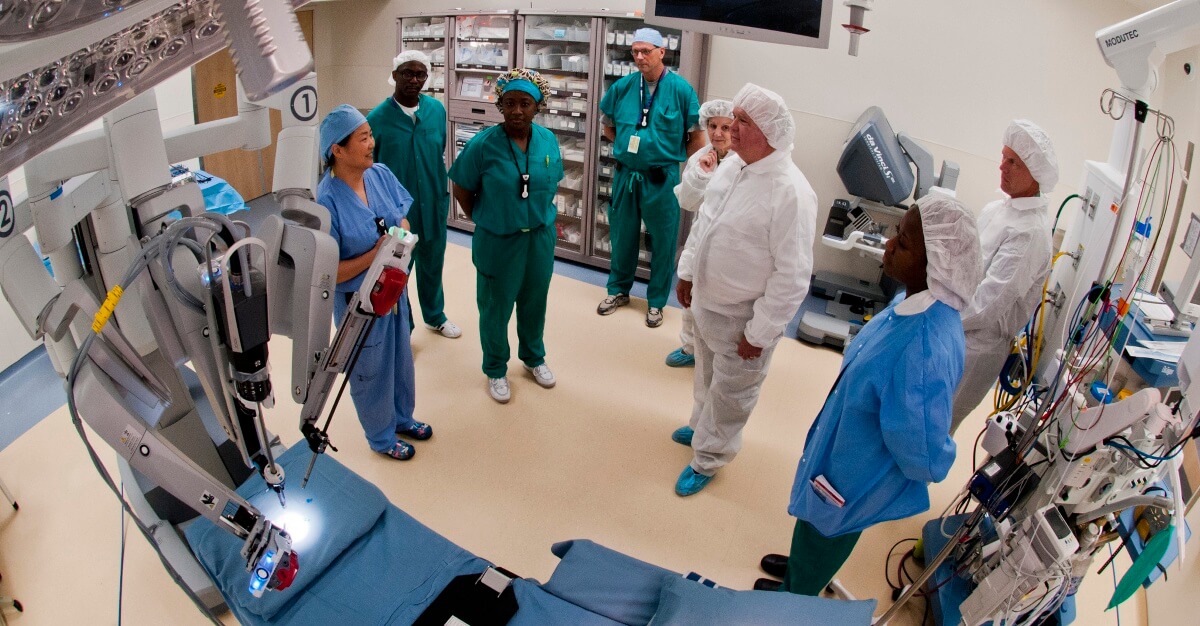We propose a multi-disciplinary group of stakeholders to develop guidelines for evaluating surgical robots which will be of value internationally.
Technological advances and the waning of the patent rights which allowed monopoly control of the market for well over a decade has led to a recent burst of activity in developing surgical robots. This has brought into focus the question of how these machines should be evaluated.
Surgical robots are not treatments but complex platforms. Evaluating their performance involves numerous dimensions, and a comprehensive evaluation plan therefore goes beyond the scope of both standard clinical research and regulatory templates for the evaluation of recognised categories of risk.
Previous paradigm shifting advances in surgical capability such as laparoscopic surgery have been marred by very poor evaluation linked to clinician enthusiasm and loss of equipoise. This has contributed to establishment in practice without adequate evidence and unnecessary harm to patients, and has left a legacy of weakness in the evidence base about effectiveness, harms and cost-effectiveness.
Early establishment of a framework for evaluation this time around may prevent a repeat of this scenario. The current situation creates an opportunity to develop a better evaluation system and avoid repeating previous mistakes. The task is however considerably more complicated than it is with single-purpose devices or operations, because the complex nature of robots means that a wide range of evaluations will be need in order to ensure safety, efficacy and cost-effectiveness. We have therefore developed a process which involves a range of specialist sub-groups each developing recommendations in their own area, which will be combined to produce a comprehensive set of guidance.

To develop a multi-disciplinary group of stakeholders and work in a series of consensus groups to develop guidelines for evaluating surgical robots which will be of value internationally.
The consensus discussions will take as a starting point three ethical propositions:
The three essential questions which evaluation needs to answer are:
To answer these questions fully will require examination of a wide range of aspects of robot development and function. The following are suggestions for aspects to be included:
SAFETY
BENEFICIAL EFFECTS
FURTHER INNOVATION (exemplars)
The multidisciplinary team will represent all important stakeholders in the UK (and subsequently internationally) and will consider evaluation of all essential aspects of robot development and performance. Specialist groups will be tasked with reporting on 8 important aspects of surgical robotics.
A broad range of stakeholders will be invited to take part and international membership of the group will be developed to avoid bias from over-emphasis on one set of perspectives. IDEAL will work in partnership with two other UK organisations with a major interest in this area – the Royal College of Surgeons and the NIHR MedTech group and NIHR Incubator for robotic surgery.
Other stakeholders represented will include:
Seven working groups have been established to discuss different aspects of the evaluation of surgical robots. These groups include – Clinical (Pedro Ramirez) Human Factors (Ken Catchpole) Health Economics (Maroeska Rovers) Engineering (Dan Stoyanov, and David Noonan) Patients (Lesley Booth) Ethics (Katrina Hutchison) Training and Mentoring (Prokar Dasgupta).
The groups aim to produce an interim report this year and to exchange and discuss these over the winter before a final plenary discussion and development of guidance in Late 2022.